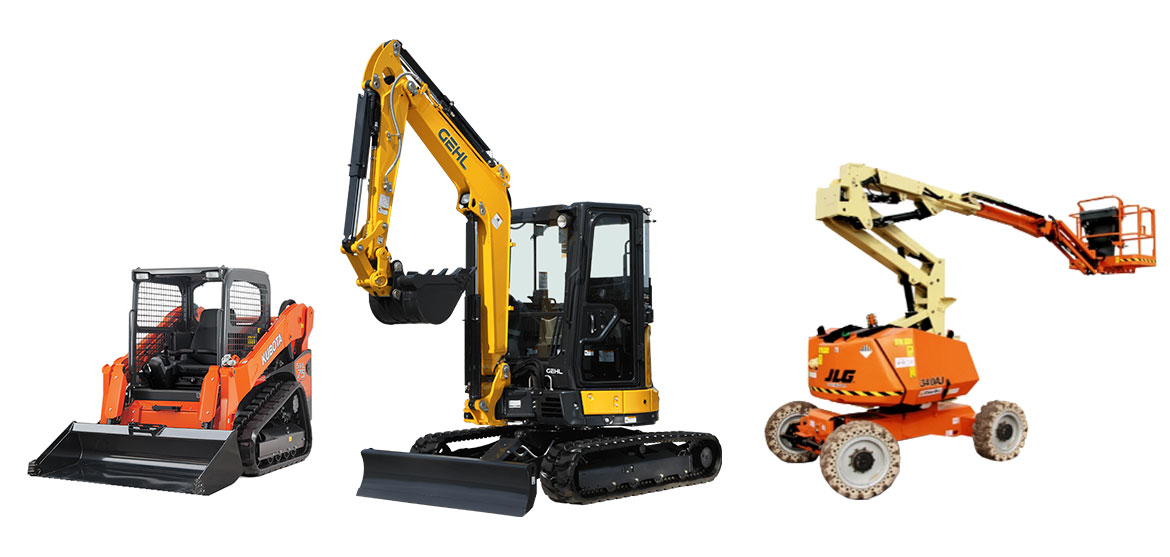Maximize Your Spending Plan by Comprehending the Costs Related To Building And Construction Equipment Services
Comprehending the full extent of costs connected with building and construction devices rentals is essential for maximizing your budget. While the initial rental fee may seem uncomplicated, numerous extra costs-- such as transport, fuel surcharges, and upkeep-- can promptly build up, impacting your financial planning. Furthermore, recognizing different fees and the intricacies of rental arrangements can help prevent unanticipated monetary concerns. What strategies can be utilized to successfully take care of these expenses and ensure a more effective rental experience?
Introduction of Rental Costs
When taking into consideration construction devices leasings, recognizing the linked prices is critical for reliable budgeting and job planning. Rental prices can vary considerably based on numerous elements, including tools kind, period of rental, and place. The first rental fee often shows the tools's market need and its connected functional capabilities, influencing the general expenditure.
In enhancement to the base rental price, secondary expenses might arise, such as transportation fees, fuel surcharges, and upkeep charges. It is necessary to make up these extra expenditures to properly assess the total expense of renting equipment. Furthermore, the rental duration can influence pricing; longer rentals may certify for discounted prices, while temporary leasings could incur higher everyday fees.

Failure of Rental Prices
A comprehensive understanding of rental prices is essential for contractors and task managers intending to optimize their budget plans. Rental prices for building and construction tools usually contain numerous elements, including base prices, time-based charges, and use costs.
Base prices are the core costs connected with the leasing of the devices, frequently identified by the type and dimension of the equipment. These prices can differ substantially, influenced by elements such as equipment need, availability, and regional market fads. Time-based charges, which might be daily, weekly, or monthly, offer to accommodate various project timelines and rental periods.
Additionally, rental rates might consist of use charges, which apply when equipment is utilized past a defined limit, ensuring that the rental business can represent deterioration. Seasonal demand variations can likewise influence rental prices, with peak building and construction periods generally commanding greater costs.
In addition, recognizing the rental business's policies concerning upkeep and insurance coverage can give further understanding right into the total cost framework. By analyzing these components, service providers can make educated choices, guaranteeing the choice of rental equipment straightens with both project demands and budget plan restrictions.
Extra Costs to Take Into Consideration
Understanding the intricacies of additional fees is crucial for service providers to handle their overall service expenses properly. Beyond the common rental rates, various supplemental fees can dramatically affect the total price of equipment leasing. These fees often include shipment and pick-up charges, which can differ based on range and logistics included in carrying the tools to and from the job website.
Furthermore, some rental business may impose gas surcharges if the tools is returned with less fuel than when rented out. It is additionally vital to understand possible cleaning charges, particularly for customized devices that calls for extensive upkeep after use.

Completely reviewing the rental arrangement and making clear these additional charges upfront can assist contractors guarantee and stay clear of unexpected expenses that spending plans stay undamaged throughout the project lifecycle.
Repair And Maintenance Expenses
Regular maintenance and repair expenditures are usually overlooked aspects Our site that can considerably influence the general price of building and construction equipment leasings. When renting equipment, it is important to take into consideration not just the rental charges but additionally the prospective expenses related to keeping the machinery in optimum operating condition.
Lots of rental business consist of fundamental maintenance as component of the rental arrangement; however, more substantial fixings or unanticipated break downs can result in added expenditures. It's vital to review the rental agreement carefully to recognize what maintenance solutions are covered and what responsibilities drop on the occupant.
Additionally, tools that is not well-kept can cause ineffectiveness on duty site, potentially boosting and causing hold-ups job expenses. To reduce these dangers, it is a good idea to carry out routine assessments and preserve open interaction with the rental provider relating to any kind of concerns that arise throughout usage.
Insurance Policy and Obligation Prices
Insurance policy and obligation expenses are critical elements that can significantly this website affect the total cost of building devices rentals (dozer rental). These costs guarantee that both the rental company and the client are shielded from potential economic losses emerging from accidents, damages, or burglary throughout the rental duration

In addition, clients ought to know any kind of deductibles or exemptions in the insurance coverage plan, as these can influence potential out-of-pocket expenditures. Understanding the terms of any kind of insurance policy protection is essential to prevent unanticipated expenses. Inevitably, budgeting for insurance policy and liability expenditures can aid ensure a smoother rental experience and shield versus economic risks related to construction projects.
Verdict
In verdict, a detailed understanding of the prices associated with construction equipment rentals is necessary for reliable budget plan monitoring. Eventually, notified decision-making regarding devices rentals contributes to the total success of building and construction undertakings.
Rental expenses can differ significantly based on several variables, including equipment type, period of leasing, and location (forklift rental). The rental duration can affect prices; longer leasings may qualify for discounted rates, while short-term rentals might incur higher day-to-day fees
By heavy equipment supplier carrying out thorough research study and engaging with credible rental companies, professionals can properly browse the complexities of rental rates, eventually maximizing their financial sources.
Beyond the typical rental prices, numerous additional costs can dramatically influence the overall expense of equipment rental. Rental firms frequently supply liability insurance that covers injuries to third events or damage to home, while devices damage insurance policy can cover the expense of fixings or substitute if the rented out equipment is harmed.